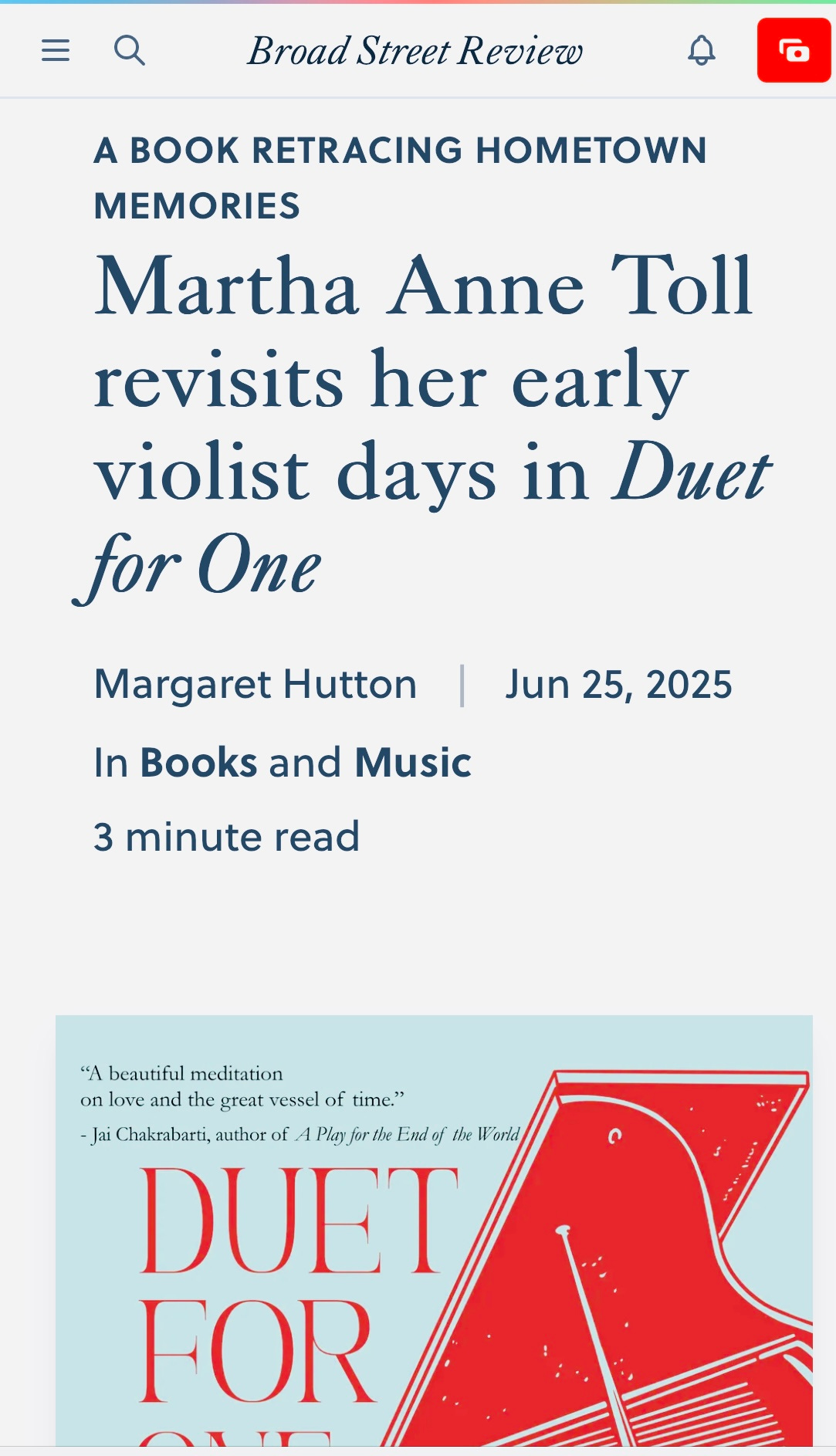Thank you to the Philadelphia-based Broad Street Review, and to writer Margaret Hutton for a generous piece about my viola playing days in Philly.
Are you a list maker? I make grocery lists and to do lists. I write them on used envelopes and scrap paper—none of this store-it-in-your-phone business.
I also make book lists. In 2010, I wrote a piece for NPR entitled One Nightstand, Six Affairs: Novels Of Illicit Love. When I went back to look at it, I was tickled that Eleanor Catton’s THE REHEARSAL was there, before she became famous as a Booker Prize winner—THE LUMINARIES—and before she wrote BIRNHAM WOOD.
THE REHEARSAL could have made it onto one of my lists of music books. It’s a disturbing story of predatory music teachers and crushing experiences at drama school. “There are few ways to anchor yourself in this book,” was my comment. I was impressed by the novelty of the story, and the strangeness of the presentation.
This week I published a musical book list called 7 Books that Get Classical Music Right. I featured books that lift the curtain on the classical music world, celebrate it, and yes, expose racism in the establishment.
If you’re a fellow list appreciator—I’ve published two earlier pieces about musical books: On Classical Music [historical novels], and 8 Memoirs About the Journey to Becoming a Classical Musician.
Writing land is filled with interesting articles. Here’s one from The Paris Review by Anthony Madrid entitled “What Goes Wrong When We Write Ghazals in English.” “A ghazal is a poetic form originating in and strongly associated with the Islamic cultural sphere.” I didn’t know that. I loved this article for opening me to something new, and for describing the myriad intricacies and pitfalls of translation.
Republic of Cruelty
I am slammed by the Supreme Court’s rulings this week. I can’t understand why they’re deciding as they are, but it is grim. I suspect many of us are slammed. We are horrified by ICE deportations, the daily spewing of racism and homophobia, the demolition of environmental protections, the erasure of science, the drumbeat of hatred and lies. We are in tough, depressing times.
Today I turn to Reverend William Barber II, a beacon for justice. I share words from his latest newsletter: “Now is the time to intensify our agitation.”
We cannot despair. This is a moment to remember those who came before us. During the abolition movement, when the Supreme Court ruled that a Black person in this country did not have any right that a white person was obliged to respect, Frederick Douglass taught us that moments of extremism like this can serve to build up the movements that will ultimately end injustice. In the face of the Court’s monstrous Dred Scott decision, Douglass declared that we must “intensify and embolden our agitation.”
In fact, he said a decision this bad might actually serve to awaken those who’ve not yet recognized that We the People are the ones who must act to reclaim America.
Yes, the decision is terrible. Yes, we are all now more vulnerable than we were yesterday. But we cannot shrink back. Now is the time to stand together, embrace unlikely alliances, and build the power we need to take back a government of the people and by the people. The darkest hour is always the one that comes just before the dawn. May this extremism unite us in a movement that can reconstruct the political architecture of this country that we love.
With love,
Martha
P.S. ICYMI, here’s last week’s newsletter/Substack, “Tash Aw: Honoring Pride Month.”
Click here for the complete playlist for DUET FOR ONE on Spotify.






